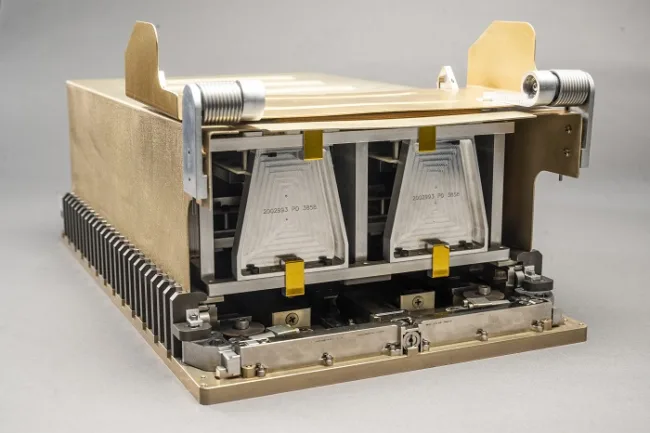Rocket Lab unveils Advanced Satellite Dispenser at Small Satellite Conference
Rocket Lab USA, Inc., a global leader in launch services and space systems, has unveiled its next-generation satellite separation system, the Advanced Satellite Dispenser (ASD), at the Small Satellite Conference in Logan, Utah. The ASD represents a significant advancement over the company’s previous Canisterized Satellite Dispenser (CSD) technology, which has been instrumental in deploying over 60 satellites to orbit over the past 11 years.
The ASD is designed to be a cost-effective, versatile, and reliable mechanism for deploying small satellites in the CubeSat form factor. It builds upon the robust legacy of the CSD, offering enhanced features and greater flexibility for satellite designers. The new system introduces the option to either remove encapsulation of the payload during flight or use optional walls and doors, enabling deployment with or without canisterization. This flexibility allows satellite designers to better tailor their payloads to specific mission requirements.
Enhanced Flexibility and Reliability
The Advanced Satellite Dispenser incorporates Rocket Lab‘s heritage preloaded tab interface, which ensures secure payload deployment with no slipping or gapping within the system. This design enhancement provides mission assurance for both the primary payload and any secondary payloads sharing the fairing, as well as for the launch vehicle itself.

Rocket Lab unveils its Advanced Satellite Dispenser at the Small Satellite Conference. The new system enhances satellite deployment flexibility and reliability. Photo courtesy of Rocket Lab.
Brad Clevenger, Vice President of Space Systems at Rocket Lab, highlighted the importance of reliability in satellite separation systems, stating that dependability is crucial as they are the final step before a spacecraft enters orbit. Clevenger noted Rocket Lab’s long history of delivering reliable separation systems, starting with Planetary Systems Corporation and continuing under Rocket Lab’s banner. He emphasised that the ASD builds on this legacy, offering a cost-effective solution with fewer technical constraints while maintaining the high reliability Rocket Lab is known for.
Strategic Expansion and Industry Impact
Rocket Lab’s commitment to innovation in satellite separation systems was further strengthened by its acquisition of Planetary Systems Corporation in 2021. This Maryland-based company had been a trusted name in the industry for over 25 years, and its integration into Rocket Lab’s operations has expanded the company’s capabilities in developing and supplying satellite separation systems.
Today, Rocket Lab’s separation systems are deployed on most active U.S. launch vehicles and have successfully facilitated the deployment of over 360 spacecraft to orbit. The introduction of the ASD marks another milestone in Rocket Lab’s ongoing effort to provide cutting-edge space systems solutions.
Expert Opinion
The introduction of the Advanced Satellite Dispenser underscores Rocket Lab’s ongoing commitment to pushing the boundaries of space technology. The company’s ability to innovate while maintaining reliability speaks to its deep understanding of the industry’s needs. The ASD’s enhanced flexibility and cost-effectiveness could significantly impact how satellite missions are designed and executed, offering new possibilities for satellite operators.
On August 2, 2024, Rocket Lab successfully launched the fifth radar imaging satellite for Synspective, a Japanese Earth-imaging company. This mission, named “Owl For One, One For Owl,” marks the fifth of 16 Electron launches planned for Synspective to deploy a Synthetic Aperture Radar (SAR) satellite constellation. This partnership underscores Rocket Lab’s capability to provide flexible, tailored, and direct access to orbit. In June 2024, Rocket Lab signed its largest single launch contract to date, agreeing to ten dedicated Electron launches for Synspective from 2025 through 2027. This agreement is set to significantly bolster Synspective’s goal of deploying up to 30 satellites by the end of the decade.
Rocket Lab has also secured a preliminary agreement with the Biden administration for a $23.9 million federal investment to increase the production of solar cells for spacecraft and satellites. This investment aims to enhance Rocket Lab’s manufacturing capabilities and support the growing demand for space-grade solar technology. The introduction of the ASD and Rocket Lab’s recent achievements reflect the company’s strategic focus on expanding its capabilities and maintaining its leadership in the space industry. The ASD’s enhanced flexibility and cost-effectiveness are expected to impact how satellite missions are designed and executed, offering new possibilities for satellite operators.
The continuous advancements by Rocket Lab demonstrate the company’s deep understanding of the space industry’s evolving needs. By providing reliable and innovative solutions like the ASD, Rocket Lab is well-positioned to support the growing demand for small satellite deployments and enhance the overall efficiency of space missions.
What is the Advanced Satellite Dispenser (ASD) by Rocket Lab?
The ASD is Rocket Lab’s next-generation satellite separation system, offering enhanced features and greater flexibility for deploying small satellites, particularly in the CubeSat form factor.
What recent launches has Rocket Lab completed?
Rocket Lab recently completed its 51st Electron rocket launch, deploying the fifth radar imaging satellite for Synspective. This mission is part of a larger agreement for 16 launches to deploy Synspective’s Synthetic Aperture Radar (SAR) satellite constellation.
What are Rocket Lab’s future plans with Synspective?
Rocket Lab has a multi-launch agreement with Synspective for ten dedicated Electron launches from 2025 to 2027, aimed at deploying up to 30 satellites by the end of the decade.
Discover more from Business-News-Today.com
Subscribe to get the latest posts sent to your email.

